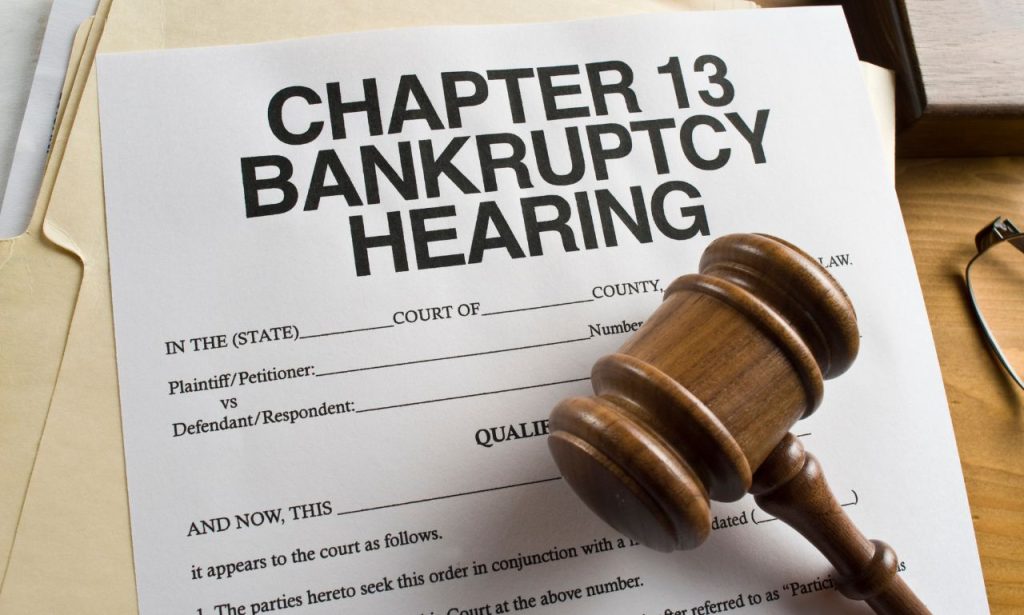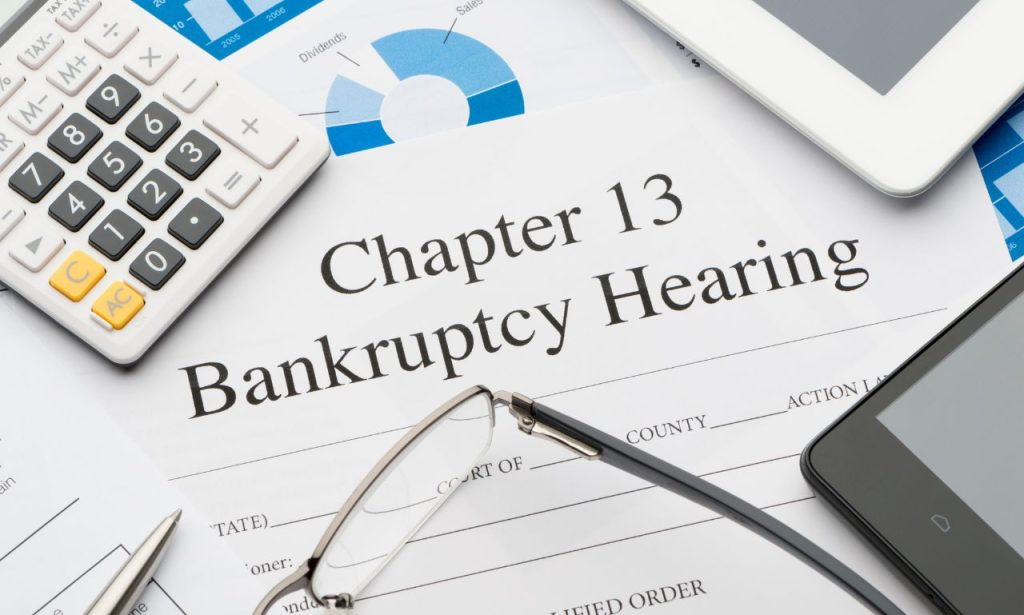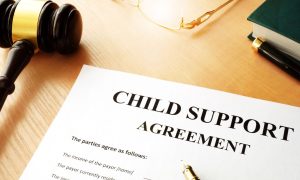Renting an apartment during Chapter 13 bankruptcy might seem intimidating at first, but with the right information and approach, it is entirely possible. Chapter 13 bankruptcy, also known as a wage earner’s plan, allows individuals with a regular income to develop a plan to repay all or part of their debts. This repayment plan typically spans three to five years, during which time you may need to secure new housing.
In this article, we will explore the intricacies of renting an apartment while in Chapter 13. We will delve into why credit history matters, how bankruptcy affects rental agreements, and provide practical tips to improve your chances of securing a lease. Additionally, we will answer frequently asked questions to address common concerns.
Can I Rent an Apartment After Chapter 13?
The short answer to whether you can rent an apartment after Chapter 13 is yes. However, it comes with challenges. Landlords typically conduct background checks and review credit reports as part of the application process. A Chapter 13 bankruptcy on your record can raise red flags, but it doesn’t automatically disqualify you from renting.
Understanding Chapter 13 Bankruptcy

Chapter 13 bankruptcy is a court-approved repayment plan that allows individuals to restructure their debt. Unlike Chapter 7 bankruptcy, which involves liquidating assets to pay off debts, Chapter 13 focuses on income-based repayment over a set period. This plan helps protect valuable assets, such as your home, from foreclosure.
Factors Affecting Rental Applications Post-Bankruptcy
- Credit History: Your credit report will show your bankruptcy filing, which can impact a landlord’s decision. However, demonstrating a consistent payment history during your Chapter 13 plan can help mitigate concerns.
- Income: A stable and sufficient income is crucial. Landlords want assurance that you can afford the rent.
- Employment History: Long-term employment with a steady income can positively influence a landlord’s decision.
- Rental History: A solid rental history with positive references from previous landlords can outweigh some of the concerns associated with bankruptcy.
Why Your Credit History Matters When Renting an Apartment After Chapter 13
Your credit history is a record of your financial behavior, and it plays a significant role in rental applications. Landlords use credit reports to gauge your reliability in paying rent on time.
Impact of Bankruptcy on Credit Reports
When you file for Chapter 13 bankruptcy, it remains on your credit report for seven years from the filing date. This notation can lower your credit score and signal potential risk to landlords. However, it’s important to note that not all landlords weigh credit reports equally. Some may be more understanding of your situation, especially if you can demonstrate financial responsibility post-filing.
Rebuilding Credit During and After Chapter 13
Rebuilding your credit is crucial during and after Chapter 13. Here are some strategies:
- Consistent Payments: Ensure timely payments on your Chapter 13 repayment plan and any other debts.
- Secured Credit Cards: Consider applying for a secured credit card to help rebuild your credit. Use it responsibly and pay off the balance each month.
- Monitor Credit Reports: Regularly check your credit reports for accuracy and dispute any errors.
What Matters for Landlords
When evaluating rental applications, landlords consider several factors beyond your credit history.
Your Income
A stable and sufficient income is perhaps the most critical factor. Landlords want to ensure that you can afford the rent. Typically, they look for an income that is at least three times the monthly rent. Providing proof of income, such as pay stubs or bank statements, can strengthen your application.
Employment History
A consistent employment history with a reliable income source can positively influence a landlord’s decision. It demonstrates financial stability and the ability to meet rental obligations.
Rental History
A solid rental history with positive references from previous landlords can be a significant asset. It shows that you are a responsible tenant who pays rent on time and maintains the property well. If you have a good relationship with past landlords, ask them for a reference letter.
Will Bankruptcy Affect Renting a House or Apartment?
Bankruptcy can affect your ability to rent a house or apartment, but it doesn’t make it impossible. Here are some ways it might impact your application process:
Landlord Hesitations
Some landlords may hesitate to rent to individuals with a bankruptcy on their record due to concerns about financial stability. However, many landlords are willing to consider the full picture, including your income, employment history, and rental references.
Higher Security Deposits
To mitigate perceived risk, some landlords may require a higher security deposit. Be prepared for this possibility and plan your finances accordingly.
Co-Signers
In some cases, having a co-signer with a strong credit history can help secure a lease. A co-signer agrees to be responsible for the rent if you default, providing additional security to the landlord.
Does Filing a Bankruptcy Stop a Rental Eviction?
Filing for bankruptcy can temporarily halt eviction proceedings, but it doesn’t provide a permanent solution.
Automatic Stay
When you file for Chapter 13 bankruptcy, an automatic stay goes into effect. This stay temporarily halts most collection activities, including eviction proceedings. However, if your landlord has already obtained a judgment for possession before you file for bankruptcy, the eviction process may proceed.
Exceptions to the Automatic Stay
The automatic stay has limitations. For example, it won’t stop an eviction if:
- The eviction is due to illegal activity.
- The landlord has already obtained a judgment for possession.
- You fail to pay rent during the bankruptcy proceedings.
Working with Your Landlord
Open communication with your landlord is crucial. If you’re struggling to pay rent due to bankruptcy, discuss your situation with your landlord. They may be willing to work out a payment plan or offer a temporary reduction in rent.
Does Chapter 13 Help with Mortgage Payments?
Chapter 13 bankruptcy can help individuals keep their homes and manage mortgage payments more effectively.
Repayment Plan
Under Chapter 13, you can include missed mortgage payments in your repayment plan. This allows you to catch up on arrears over time while maintaining current payments. It provides a structured way to manage your mortgage debt and avoid foreclosure.
Automatic Stay
The automatic stay in Chapter 13 also applies to foreclosure proceedings, giving you temporary relief from creditors while you work on your repayment plan.
What is Chapter 13 Bankruptcy?
Chapter 13 bankruptcy, often called a wage earner’s plan, allows individuals with regular income to develop a plan to repay all or part of their debts. Here’s a closer look at how it works:
Filing for Chapter 13
To file for Chapter 13, you must submit a petition to the bankruptcy court along with detailed information about your finances, including income, expenses, debts, and assets. You also need to propose a repayment plan that spans three to five years.
Repayment Plan
Your repayment plan outlines how you will pay off your debts over the designated period. It prioritizes secured debts, such as mortgage arrears and car loans, and allocates a portion of your disposable income to unsecured debts, like credit card balances.
Court Approval
The bankruptcy court must approve your repayment plan. Once approved, you begin making payments to a bankruptcy trustee, who distributes the funds to your creditors.
How Does Renting During Chapter 13 Bankruptcy Work?

Renting an apartment during Chapter 13 bankruptcy involves several considerations and steps to ensure a successful application process.
Understanding Your Financial Situation
Before you start your apartment search, take stock of your financial situation. Determine what you can afford in terms of rent, considering your income and expenses under your Chapter 13 plan.
Preparing Your Application
When preparing your rental application, be transparent about your bankruptcy status. Highlight the positive aspects of your financial situation:
- Stable Income: Provide proof of your consistent income.
- Employment History: Include information about your long-term employment.
- Rental References: Gather positive references from previous landlords.
Writing a Letter of Explanation
Consider writing a letter of explanation to accompany your rental application. This letter can address your bankruptcy, provide context for your financial situation, and emphasize your efforts to rebuild your credit and maintain financial stability.
Be Prepared for Additional Scrutiny
Expect that landlords may scrutinize your application more closely. They might request additional documentation or ask questions about your bankruptcy. Be prepared to provide honest and thorough answers.
Tips for Renting a Home After Bankruptcy
Renting a home after bankruptcy requires careful planning and proactive steps to present yourself as a reliable tenant. Here are some tips to improve your chances:
1. Improve Your Credit Score
Focus on rebuilding your credit score by making timely payments on all your debts, including your Chapter 13 plan. Consider using secured credit cards and keep your credit utilization low.
2. Save for a Higher Security Deposit
Anticipate that some landlords might require a higher security deposit. Save extra funds to cover this possibility, demonstrating your financial responsibility.
3. Seek Out Understanding Landlords
Look for landlords who are more lenient with credit issues. Smaller, independent landlords may be more willing to consider your application than large property management companies.
4. Offer a Co-Signer
If possible, find a co-signer with a strong credit history who can vouch for you. A co-signer can provide additional assurance to the landlord about your ability to pay rent.
5. Provide Strong References
Strong rental references from previous landlords can significantly bolster your application. Ensure that your references highlight your reliability and positive rental history.
6. Be Transparent
Honesty is crucial when discussing your bankruptcy with potential landlords. Explain your situation clearly and emphasize your commitment to financial stability.
7. Consider Budget-Friendly Rentals
Initially, consider rentals that are well within your budget. Demonstrating a lower rent-to-income ratio can make you a more attractive tenant.
8. Negotiate Lease Terms
If a landlord is hesitant, see if you can negotiate terms that provide them with additional security, such as a shorter lease term or direct rent payments from your trustee.
Conclusion
Securing an apartment while in Chapter 13 bankruptcy is challenging but feasible with the right approach. Understanding the factors landlords consider, being transparent about your situation, and taking proactive steps to rebuild your credit and demonstrate financial responsibility are key. By following the tips outlined in this guide, you can improve your chances of finding a suitable rental home and continue your journey toward financial stability.
ALSO READ: The Best Places in US to Buy Multi-Family Properties
FAQs
Chapter 13 bankruptcy remains on your credit report for seven years from the filing date and can lower your credit score. However, timely payments and responsible financial behavior can help rebuild your credit over time.
Some landlords may hesitate to rent to individuals with a bankruptcy on their record, but many are willing to consider other factors such as income, employment history, and rental references.
Filing for bankruptcy can temporarily halt eviction proceedings through an automatic stay, but it doesn’t provide a permanent solution. The stay has limitations and may not apply in all cases.
To improve your chances, focus on rebuilding your credit, saving for a higher security deposit, seeking out understanding landlords, providing strong rental references, and being transparent about your situation.





